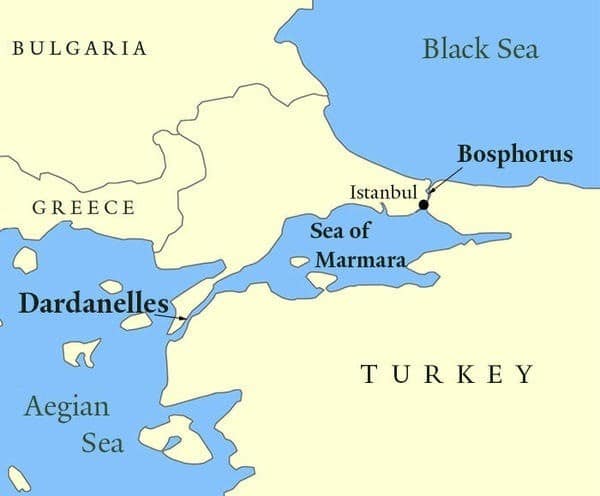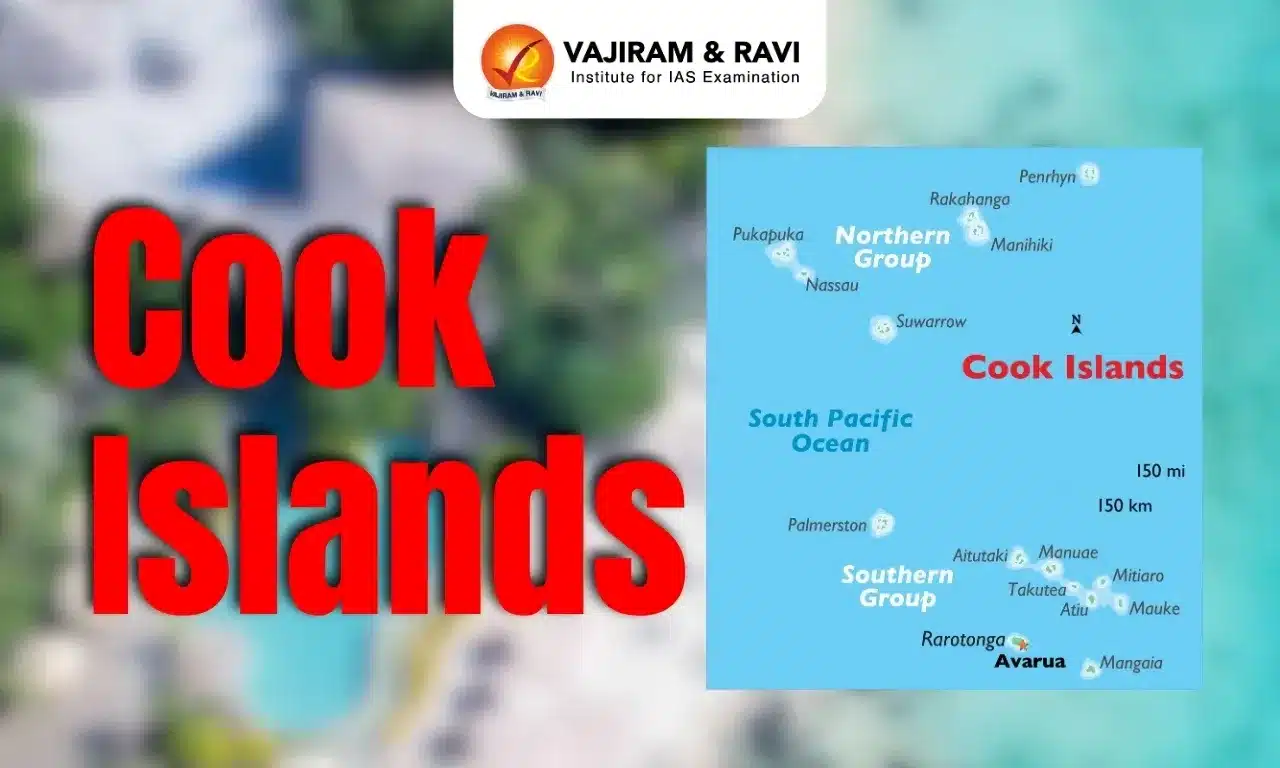About Montreux Convention
- It is an agreement concerning the Dardanelles strait and the Bosporus strait, also known as the Turkish straits or the Black Sea straits.
- The Turkish straits are the only maritime passage between the Black Sea and the Mediterranean Sea.
- According to the 1936 Montreux Convention Regarding the Regime of the Straits, often referred to simply as the Montreux Convention, Turkey has control over the Turkish Straits.
- In the event of a war, the pact gives Turkey the right to regulate the transit of naval warships and to block the straits to warships belonging to the countries involved in the conflict.
- Merchant vessels enjoy freedom of passage through the Turkish Straits , while passages of vessels of war are subject to some restrictions that vary depending on whether these vessels belong to the Black Sea littoral States or not.
- Besides some general restrictions applicable to all, vessels of war belonging to non-littoral States are subject to specific restrictions, such as those regarding maximum aggregate tonnage and duration of stay in the Black Sea.
- The principal provisions of the Convention ruling the passage of vessels of war are:
- Aircraft carriers, whether belonging to the littoral States or not, can in no way pass through the Turkish Straits.
- Only submarines belonging to littoral States can pass through the Turkish Straits for the purpose of rejoining their base in the Black Sea for the first time after their construction or purchase, or for the purpose of repair in dockyards outside the Black Sea.
- The total number and maximum aggregate tonnage of all foreign naval forces which may be in the course of passage through the Turkish Straits are limited to 9 and 15.000 tons respectively.
- The maximum aggregate tonnage which non-littoral States may have in the Black Sea is 45.000 tons.
- In this regard, the maximum aggregate tonnage of the vessels of war that one non-littoral State may have in the Black Sea is 30.000 tons.
- Vessels of war belonging to non-littoral States cannot stay more than 21 days in the Black Sea.
- Passages through the Turkish Straits are notified to Türkiye through diplomatic channels prior to intended passages.
- The notification time is 8 days for vessels of war belonging to littoral States, and 15 days for those of non-littoral States.
- Article 19 of the Convention:
- Vessels of war belonging to belligerent powers, whether they are Black Sea Powers or not, which have become separated from their bases, may return thereto.
- That means warships can return to their original bases through the passage, and Turkey cannot prevent it.
- For example, a Russian fleet registered in the Black Sea but currently located in the Mediterranean Sea is allowed to pass through the Bosporus and Dardanelles straits and return to its base.
Q1) What are belligerent powers?
Belligerent powers are countries or entities engaged in active, armed conflict or warfare. These are the parties involved in a state of war, whether it’s a declared war, an international armed conflict, or a civil war.
Source: Türkiye imposes restrictions on the passage of warships in its straits under the Montreux Convention
Last updated on June, 2025
→ UPSC Notification 2025 was released on 22nd January 2025.
→ UPSC Prelims Result 2025 is out now for the CSE held on 25 May 2025.
→ UPSC Prelims Question Paper 2025 and Unofficial Prelims Answer Key 2025 are available now.
→ UPSC Calendar 2026 is released on 15th May, 2025.
→ The UPSC Vacancy 2025 were released 1129, out of which 979 were for UPSC CSE and remaining 150 are for UPSC IFoS.
→ UPSC Mains 2025 will be conducted on 22nd August 2025.
→ UPSC Prelims 2026 will be conducted on 24th May, 2026 & UPSC Mains 2026 will be conducted on 21st August 2026.
→ The UPSC Selection Process is of 3 stages-Prelims, Mains and Interview.
→ UPSC Result 2024 is released with latest UPSC Marksheet 2024. Check Now!
→ UPSC Toppers List 2024 is released now. Shakti Dubey is UPSC AIR 1 2024 Topper.
→ Also check Best IAS Coaching in Delhi
























